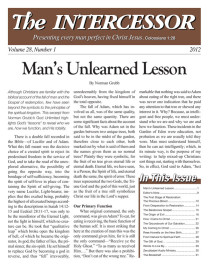
The Intercessor, Vol 28 No 1

"Presenting every man perfect in Christ Jesus" - Colossians 1:28

The purpose of Zerubbabel Press is to further the great high calling of the Lord Jesus to carry His Gospel to the whole world. This calling is known in the Christian world as the Great Commission. Our interpretation of the Gospel is that Jesus Christ was the second member of the Trinity, fully God, made manifest in the flesh. He was tempted in all points as we are, but totally without sin. He was crucified for the sins of the world, was buried, and rose from the dead on the third day, according to the Scriptures. He gives the power to become the sons of God to all who receive Him.
Zerubbabel, Inc.
PO Box 1710
Blowing Rock, NC 28605
Tel: 828-295-7982
Fax: 828-295-7900
info@zerubbabel.org
Our online store offers books, audiotapes, and CDs which present the biblical doctrine of our union with Christ.

Words to Live by is a weekly devotional email of Scriptures and quotes that highlight and expound upon our Union with Christ. If you'd like to receive devotionals like the one below, please subscribe using this link. Wednesday April 23, 2025 Resist the devil "We 'agree with our adversary ... continue reading.
Copyright © 2018
Zerubbabel, Inc.
All Rights Reserved
Website design by
Horizon Mediaworks LLC